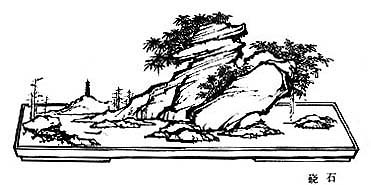Shi Jing 
 – The Book of Odes
– The Book of Odes
The oldest collection of Chinese poetry, more than three hundred songs, odes and hymns. Tr. Legge (en) and Granet (fr, incomplete).
Shijing II. 4. (190)
Who can say that you have no sheep ?
There are three hundred in [each] herd.
Who says that you have no cattle ?
There are ninety, which are black-lipped.
Your sheep come,
Horned, but all agreeing.
Your cattle come,
Flapping their ears.
Some are descending among the mounds ;
Some are drinking at the pools ;
Some are lying down, some are moving about.
Your herdsmen come,
Bearing their rain-coats and bamboo-hats,
Or carrying on their backs their provisions.
In thirties are the creatures arranged according to their colours ;
For your victims there is abundant provision.
Your herdsmen come,
With their large faggots, and smaller branches,
And with their prey of birds and beasts.
Your sheep come,
Vigorous and strong,
None injured, no infection in the herd.
At the wave of the [herdsman's] arm,
All come, all go up [into the fold].
Your herdsmen shall dream, –
Of multitudes and then of fishes ;
Of the tortoise-and serpent ; and then of the falcon banners.
The chief diviner will divine the dreams,
How the multitudes dissolving into fishes,
Betoken plentiful years ;
How the tortoise-and-serpent dissolving into falcon banners,
Betoken the increasing population of the kingdom.
Legge 190

The Book of Odes – Shi Jing II. 4. (190) – Chinese off/on – Français/English
Alias Shijing, Shi Jing, Book of Odes, Book of Songs, Classic of Odes, Classic of
Poetry, Livre des Odes, Canon des Poèmes.
The Book of Odes, The Analects, Great Learning, Doctrine of the Mean, Three-characters book, The Book of Changes, The Way and its Power, 300 Tang Poems, The Art of War, Thirty-Six Strategies
Welcome, help, notes, introduction, table.
Index – Contact – Top
